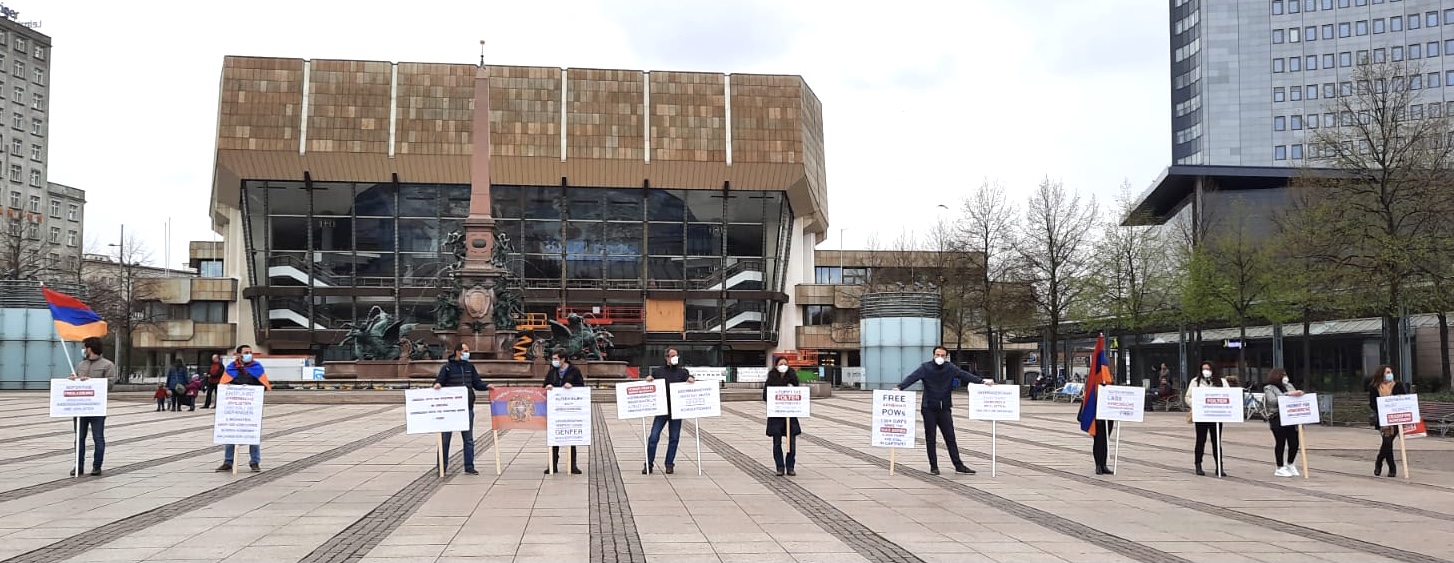On Wednesday, the 19th of May 2021, the Leipzig City Council finally appointed their representatives for the migrants’ council’s second pillar after several procedural delays. The first pillar candidates were already democratically selected. We congratulate all appointed representatives of the new and first partially democratically elected Leipzig Migrants’ Council, which will begin its work this June. To accompany this milestone, we have a special article by Georgiana Oprea who reached out to representatives from the Romanian community in Leipzig to voice their views and ambitions for the future and to stress the importance of the Romanian vote in Leipzig.
According to the latest statistics there are now approximately 800,000 Romanians in Germany. Over 4,600 of them are currently living in Leipzig, from a total of 12,000 throughout Saxony. This makes the Romanian community the fourth largest in the city, with constantly growing numbers. The community needs coverage, especially by the municipality, which must be prepared to implement the integration process, in a fair and efficient manner, for its new citizens.
From access to education in the mother tongue, to real support offered for each and every step of the integration process, there is a wide array of services that the municipality is yet to provide.
Moreover, the local Romanian community has a lot at stake in the current elections for the City of Leipzig Migrants’ Council. It is clearly a historical chance for the Romanian migrants to have a voice, to believe in their rights and be fairly represented. For them to do so, it would take a new member in the migrants’ council to be able to address their needs and, foremost, not to fail their trust.
At this moment, trust is a very hard thing to gain from Romanian voters who are, to say the least, skeptical when it comes to their political representatives. Judging by their electoral presence of merely 7.8%, totaling 475 votes registered in the latest European Parliament Elections (December 2020), this could definitely be a now or never moment for all Romanians living in Leipzig.
The Romanian political hopefuls featured in this article are strong women set apart mostly by their propositions and goals.
Pamela Doina Chiricheu
One of the candidates running for a seat in the Romanian Deputy Chamber in the Romanian Parliament Elections was Pamela Doina Chiricheu, a Romanian who has been living in Leipzig for the last 16 years and recently became a political figure. Chiricheu, currently a USRPLUS party member, is a professional librarian who became active in politics in 2019 after joining the former Romanian party PLUS.
Here is how she describes the current state of mind of the Romanian population when it comes to politics:
“Romanian migrants voted generally in larger numbers for the European Parliament Elections, at least compared to the 2016 elections, but unfortunately this was not the case in Leipzig. Here we only had 475 voting Romanians. Three times fewer than the number of voters we had for the Romanian Presidential Elections in 2019 and for the European Parliament ones. Although there are many reasons behind people’s decision of not exercising their right to vote, I would like to underline some of the aspects I think impacted them the most.
The lack of trust in politicians and Romanian politics in general generated a negative vote from all Romanians living abroad.
“Also, the pandemic has had a huge role in people’s presence at the vote, while a more active communication of their option to vote by correspondence from all of the parties involved would have encouraged more people to exercise their right. There is a huge responsibility that lies on the shoulders of the two Romanian candidates for the migrants’ council and as a citizen of Leipzig, I would be happy to be represented fairly. I wish all the luck both to Ms. Carmen Olaru, whom I have previously worked with and admire, and to Mrs. Patricia Şopterean. I hope one of them will have the chance to be the change people need.”
Carmen Olaru
Carmen Olaru is a 41-year-old entrepreneur, co-owner of Fika Shop GmbH, an active member in the V-Partei, a parent, and an aspiring political leader. She ran for a seat in the Leipzig Migrants’ Council on a clear platform:
“I want to make Romanians more open towards Leipzig’s city administration and for them to have more trust in this institution. One of the national beliefs gained while living in Romania is that one cannot trust an institution and I want to change that mentality. I want to convince the core of the Romanian community here in Leipzig to access the already in use structures, such as the Willkommenzentrum Leipzig or different NGOs that deal with completing German forms and documents for migrants and also provide translators for legal necessities, all free of charge. Many Romanians are unaware of the existence of such structures already available for them to use and unfortunately, they fall into the trap of some ‘slicks’ they find on the Internet that eventually just take their money without actually solving their problems.

“I would [have liked] to use my position in the city’s migrants’ council to lobby on behalf of the Romanian community [and to improve their image]. To this regard, representatives of the migrants’ council have the chance to invite to their work meetings the head of Leipzig Police, the Director of Public Administration, or the local public transportation director, who all have the obligation to attend our meetings because it is written in their job description. I believe in dialogue and in the importance of these representatives having to listen to the members of the migrants’ council.
“For the Romanians looking for a job without any success, I would like to help sustain them with the necessary network of contacts, in order for them to join the job market and for those already working [in unfavorable conditions], I would like to make sure they know their rights here in Leipzig as employees as I would also like for them to have the contacts of each and every union responsible for their line of activity.
“My objective is to also become a source of information for the migrants interested in developing their own business here, for those who really intend to integrate in the German system as tax contributors.
“I also believe that for every Romanian, the first step towards integration would be learning the German language or at least having the will to learn it. For some, it is really hard to deal with a job and a five-hour language course a day, but where there is a will there are always solutions and these are the solutions I want to start working on.”

Patricia Şopterean
Patricia Şopterean is 25 years old and she is the owner of PS Assistance, a company specialized in offering consultancy services to Romanians living in Germany. About her motivation to become a member of the Leipzig Migrants’ Council, here is what she had to say:
“I think that the existence of a Romanian member in the Leipzig’s Migrants’ Council [would be] very important. Being the owner of a consultancy company addressing Romanians living in Germany, my line of work puts me in contact with Romanians on a daily basis and consequently with their needs and desires. This position in the migrants’ council [would] represent a challenge for me. I hope I can be of more help to Romanians [in the future] and to shed light on the problems a new Romanian migrant has to face at their arrival in Germany.
“Most people I work with have no knowledge of the German language but they want to have a stable and reliable job and they are also looking into the possibility of bringing their families here in the future, and why not start a new decent future here.”
At this point, Romanians need to see the change in order to believe it.
Many of them left Romania to find a system that could represent them and now people need to find this change in Leipzig, a change possible only through the hard work and involvement of representatives in the City of Leipzig Migrants’ Council. A huge responsibility and a job that already seems to be a very hard one but at the same time a great chance for this actively growing community to be fairly represented.









